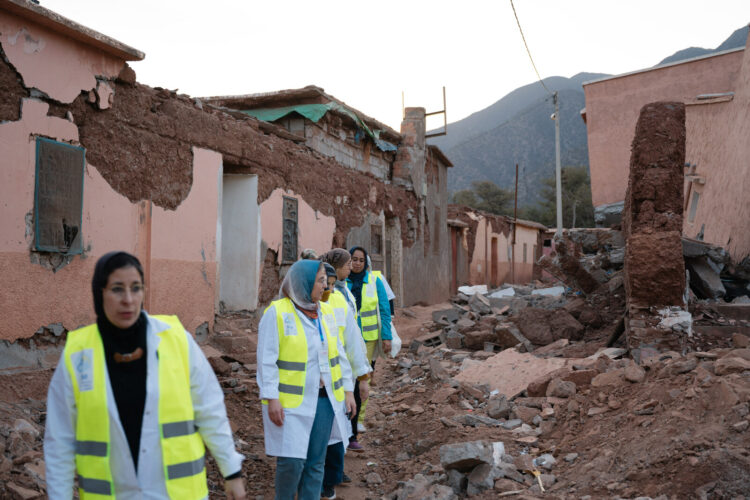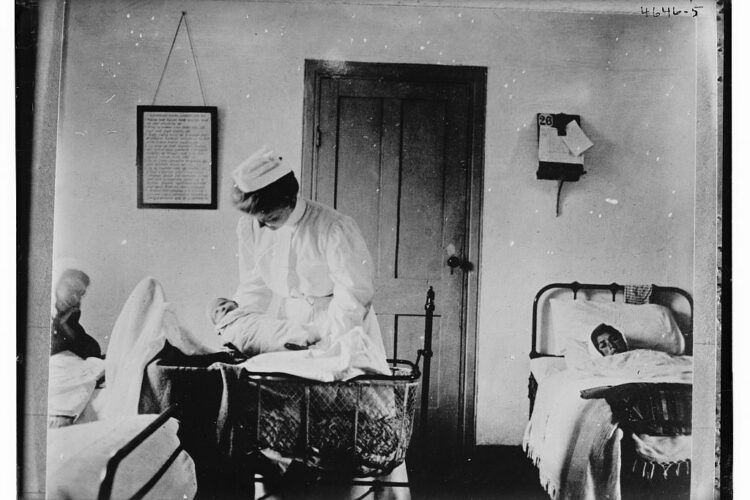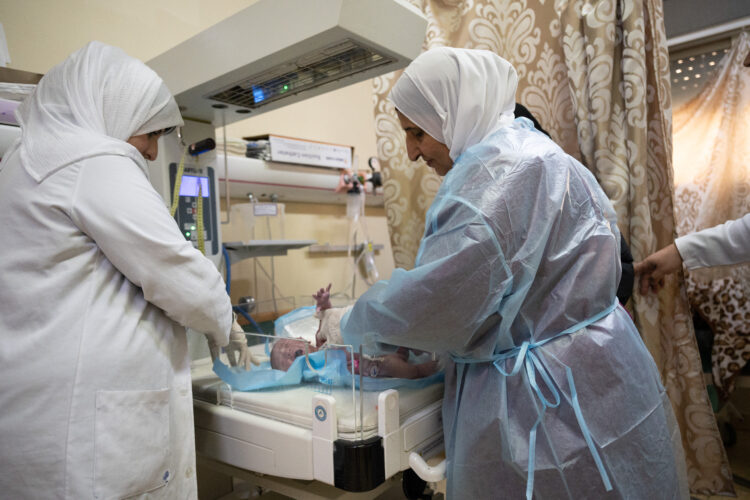Working in Conflict and Crisis Zones


Overview
Midwives safeguard the sexual and reproductive health and rights of women and newborns, ensuring they receive respectful, life-saving care, especially amid conflict and instability. Midwives play a crucial role in delivering SRMNAH services in conflict and humanitarian crises, where standard healthcare infrastructures are often compromised or nonexistent. In conflict and crisis zones, midwives are more than caregivers – they are lifelines. Their presence ensures woman-centred care is not lost, but is protected and prioritized when it is most needed.
Key Risks and Challenges:
Midwives for Peace: The Role of Midwives in Conflict
This ICM aarticle highlights the critical role midwives play in conflict zones, providing essential care and upholding human rights amid crises. It traces ICM’s origins in post-WWI Europe, emphasizing midwifery’s enduring commitment to peace and resilience in the face of adversity.
Navigating Birth and Conflict in the West Bank: A Documentary Film About the Work of Midwives
This documentary captures the resilience of Palestinian midwives delivering care amid conflict, resource shortages, and personal risk. Through firsthand accounts, it highlights their unwavering commitment to maternal health in the West Bank.
The Role of Midwives in Humanitarian Crises – ICM Position Statement
This ICM Position Statement urges inclusion of midwives in all emergency planning and response. It highlights their essential role in delivering SRMNAH care, advocating for vulnerable groups, and ensuring quality, community-based support during crises.
Expert Resources
WHO supports access to essential health services in fragile and conflict-affected settings, focusing on maternal care, mental health, and emergency response.
Conflict and Health is an open-access journal publishing research on how conflict, crises, and displacement affect public health – including maternal health, sexual and gender-based violence, mental health, infectious disease, and health systems – providing evidence to inform response and policy.
Doctors Without Borders (MSF) delivers impartial, lifesaving medical care in conflict zones worldwide, addressing trauma, maternal health, and infectious diseases.
The Inter-Agency Working Group on Reproductive Health in Crises (IAWG) is a global coalition advancing sexual and reproductive health in humanitarian settings. IAWG develops tools, conducts research, and advocates for quality healthcare during crises.
This article reviews barriers and solutions to quality midwifery care in crises, highlighting safety, support, and systems needed to improve outcomes in fragile settings.
Protect Aid Workers is a rapid-response initiative offering financial and legal support to humanitarian staff facing threats, injury, or detention due to their work. Grants up to €10,000 aid recovery and safety. The program prioritizes local and national aid workers in high-risk settings.
This systematic review identifies barriers and enablers to quality midwifery care in humanitarian settings, emphasizing the need for supportive systems to improve health outcomes.



